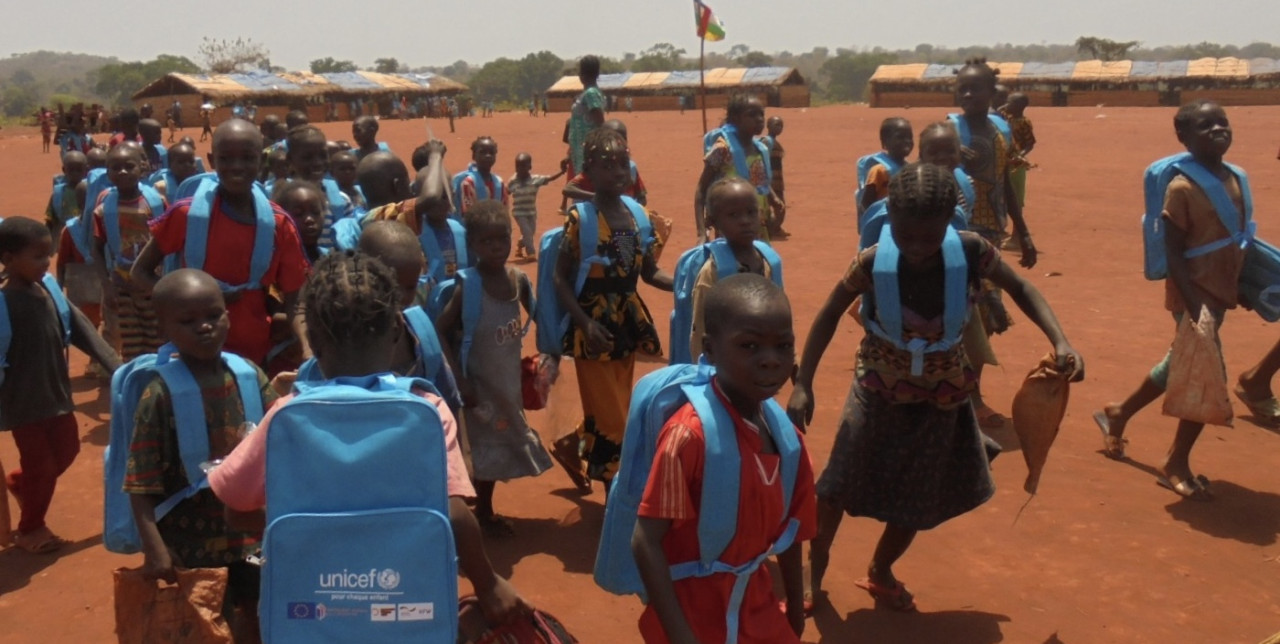16-02-2021 | di COOPI
CAR. COOPI promotes the right to education also among displaced children
In the Central African Republic, the project "Integrated response Water and sanitation, Food security and livelihoods, Education and protection for the most vulnerable women, girls, men and boys affected by the Central African crisis in the sub-prefectures of Bangassou and Bria" funded by the European Civil Protection and Humanitarian Aid Operations (ECHO) and implemented by COOPI-Cooperazione Internazionale and Oxfam has come to an end. Between 2018 and 2020, the program has enabled 12,000 children to have access to quality education in an environment that protects their rights. Among them, nearly 3,800 children live in the Bria IDP site, a place where more than 50,000 people have taken refuge following clashes between armed groups and the loyal army of the Central African Republic.
The activities of COOPI, which is committed precisely to the Education component, concerned the entire education system; they were initially carried out in the subprefecture of Bria and then, starting in March 2020, extended to the subprefecture of Bangassou. In particular, it achieved several results:
- the recruitment and training of 125 teacher-parents;
- the rehabilitation of 11 formal schools and 90 classrooms;
- the construction of 28 classrooms at the site for displaced persons in Bria;
- the supply of 1,000 school desks and the rehabilitation of 486 others;
- The provision of 125 educational kits and 25 play and sports kits;
- the distribution of 7,000 school kits to displaced students;
- the creation of 65 hand-washing facilities in supported schools;
- the implementation of 70 radio awareness campaigns on children's education and well-being.
To date, 300 children have benefited from "second chance" classes; more than 475 elementary school pupils (350 boys and 125 girls) have received individual psychosocial support; and 5,178 (2,686 girls and 2,492 boys) adolescent girls have been sensitized during life skills training sessions.
According to the United Nations Office for Humanitarian Affairs (OCHA), more than half of the Central African population - 2.9 million out of a total of 4.6 million - depends on humanitarian assistance to survive. COOPI has been working in the Central African Republic since 1974 to help the most vulnerable: internally displaced persons, women survivors of sexual abuse, and communities affected by ethnic-religious persecution and harassment.




 Central African Republic
Central African Republic